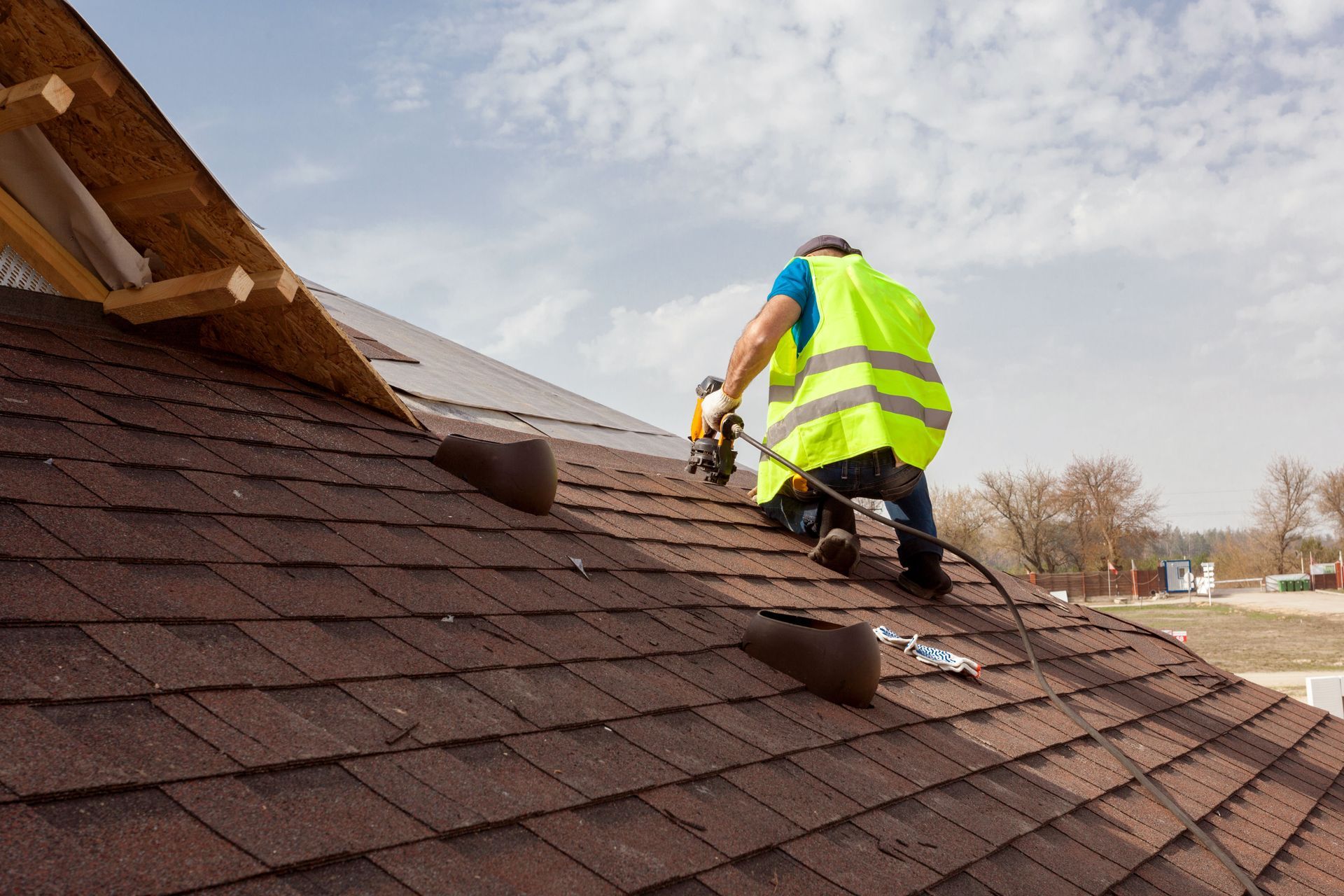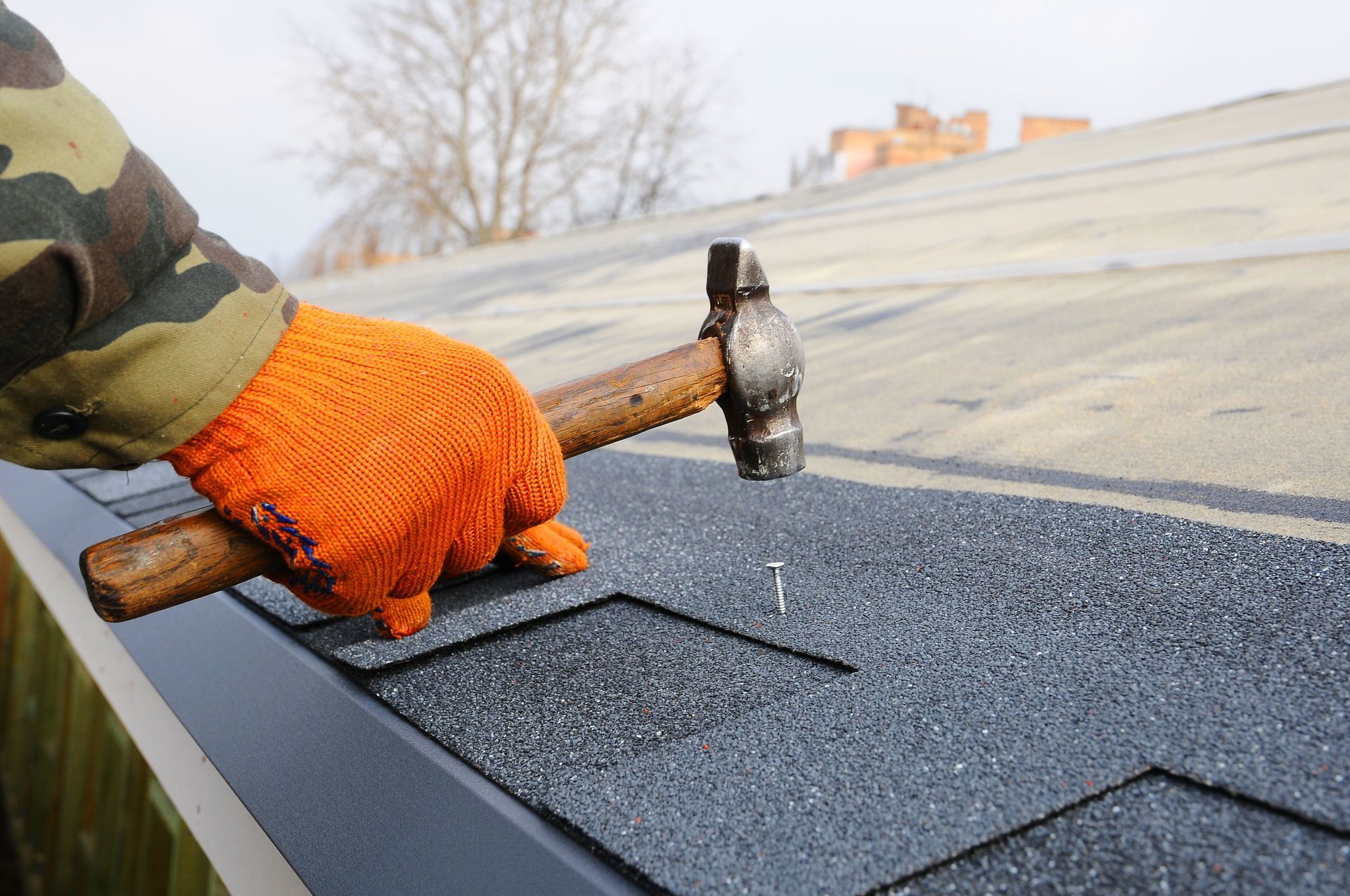10 Questions to Ask a Roofer
When it's time to replace, repair, or inspect your roof, finding the right professional is essential to protecting your home and investment. The roof isn't just another part of your house—it's your first line of defense against weather, leaks, and costly damage. Choosing a qualified roofer requires more than just checking online reviews; it involves asking the right questions before signing a contract. Homeowners who do their homework often enjoy smoother projects, longer-lasting results, and greater peace of mind.
According to Roofer's Guild, the average roof lasts between 25 and 50 years, but the precise amount of time varies significantly by roof type and property type. That statistic alone shows why choosing the right roofing professional matters—your roof's lifespan, durability, and appearance depend on the skill and integrity of the person who installs or repairs it. Below are the most important questions to ask before hiring a roofer, along with explanations to help you make an informed decision.
1. How Long Have You Been in Business?
Experience is one of the first indicators of reliability. A roofer who's been in business for several years has likely encountered many roofing materials, project types, and installation challenges. That experience translates into better workmanship and problem-solving skills.
Ask not just how long the company has existed, but also how long they've operated under their current name. Some less-reputable contractors change names frequently to escape bad reviews or warranty claims. A long-standing presence in your community signals trustworthiness and consistency.
Also, find out whether the roofer specializes in residential, commercial, or both types of properties. An experienced professional will easily explain their process and share examples of past projects similar to yours.
2. Are You Licensed and Insured?
This question might seem obvious, but it's one of the most critical. Roofing can be dangerous work, and you don't want to be liable for accidents or property damage that occur during your project. A reputable roofer should carry both general liability insurance and workers' compensation coverage.
Ask to see physical copies of their certificates, and confirm that their coverage is up to date. Similarly, licensing requirements vary by state or municipality, so ensure that your roofer complies with all local regulations. A valid license shows that the contractor has met certain standards of training and professionalism, which helps protect you from potential legal or financial trouble.
3. Can You Provide References or Reviews?
Reliable roofers are proud to share their past work. Ask for at least three references from previous clients, ideally from projects completed within the last year. When you contact those references, ask about communication, timeliness, cleanliness, and whether the final result met expectations.
If a roofer hesitates to provide references, that's a red flag. You can also research independent reviews online to look for patterns—both positive and negative. A strong reputation built on consistent performance speaks louder than marketing claims or flashy websites.
4. Who Will Be Working on My Roof?
Some companies employ their own crews, while others subcontract the work. There's nothing inherently wrong with subcontracting, but you should know who's actually completing your project. If subcontractors are involved, ask whether they're insured, trained, and supervised by the main contractor.
The roofer should also be able to tell you how many workers will be on-site, who the project manager is, and how long the job will take. Understanding these logistics helps prevent miscommunication and gives you confidence that the project will run smoothly.
5. How Do You Handle Unexpected Problems or Delays?
Even the best contractors encounter unforeseen issues—hidden water damage, weather delays, or supply shortages can all affect a project's timeline. The difference between a good and bad experience often lies in how the roofer communicates and responds to these challenges.
Ask what contingency plans they have in place. For instance, how will they protect your home if rain occurs mid-project? Will they update you regularly if materials are backordered? Clear communication during setbacks helps maintain trust and ensures your home stays protected throughout the process.
6. How Will You Protect My Property During the Project?
Roofing work can be messy. Nails, debris, and heavy materials can damage landscaping, siding, or driveways if not handled carefully. Before hiring, ask what steps the roofer takes to protect your property.
Professional roofers typically use tarps to shield landscaping and magnetic rollers to collect nails after work. They should also outline how they'll dispose of waste materials and where they'll place dumpsters or equipment. A contractor who prioritizes site cleanliness and respect for your property demonstrates professionalism and attention to detail.
7. How Long Will the Job Take?
Project timelines depend on several factors, including roof size, material type, and weather. Ask the roofer for an estimated start and completion date. While exact timing may vary, a professional should be able to provide a realistic window and explain what could cause delays.
8. How Will You Handle Cleanup After the Job?
Once the installation or repair is complete, you shouldn't be left with a mess. Cleanup is an essential part of the roofing process. Ask if post-project cleanup is included in the estimate and how thorough it will be.
A reliable roofer will remove old materials, sweep your property for stray nails, and leave your yard looking as good—or better—than before. This level of professionalism reflects pride in their work and respect for your home.
9. How Can I Maintain My Roof After Installation?
Maintenance plays a huge role in prolonging your roof's lifespan. Ask your roofer for maintenance recommendations specific to your roofing material. Regular inspections, gutter cleaning, and debris removal can all help prevent premature wear.
You may also want to discuss professional maintenance programs. Some contractors offer annual inspection plans that help detect problems early and preserve your warranty coverage. A roofer who offers ongoing support shows they're invested in the long-term protection of your home—not just a one-time job.
10. What Sets Your Company Apart From Others?
Every contractor claims to deliver great service, but a reputable roofer should be able to clearly explain what makes their business stand out. Ask about their approach to quality control, customer service, and long-term support. Some companies may emphasize their use of premium materials, while others pride themselves on transparent communication or exceptional safety standards. This question gives you insight into the roofer's values and work ethic, helping you determine whether their priorities align with yours. A contractor who takes pride in their craftsmanship and reputation is far more likely to deliver lasting results you can trust.
11. How Do You Communicate During the Project?
Clear communication can make the difference between a smooth project and a stressful one. Ask how the roofer plans to keep you updated from start to finish. Will you receive daily progress reports, photos, or calls about schedule changes? Knowing who your main point of contact is ensures you can quickly get answers when questions arise. A professional roofer should be proactive, responsive, and transparent throughout the process. This kind of open communication builds trust, keeps surprises to a minimum, and gives you confidence that your home is in capable, attentive hands.
Your roof is one of the most important features of your home, and working with a qualified professional makes all the difference. When you're ready to discuss your next roofing project, contact Rhino General Contracting Inc. We'll answer every question thoroughly, provide a detailed plan, and make sure your home receives the care it deserves from start to finish. Don't hesitate to reach out to us today for your roofing needs. We're excited to work with you!



Share On: